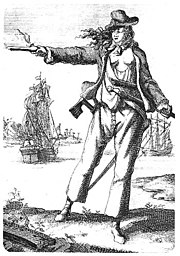They seem to be forgetting that, in previous centuries, it was rare for women to be educated. Women also often died younger due to infections contracted in childbirth.
Women were not allowed to attend university until the 1870s, and even then they were not allowed to graduate.
At the beginning of the 20th century it was very difficult for women to obtain a university education. In 1870 Emily Davies and Barbara Bodichon helped to set up Girton College, the first university college for women, but it was not recognised by the university authorities. In 1880 Newnham College was established at Cambridge University. By 1910 there were just over a thousand women students at Oxford and Cambridge. However, they had to obtain permission to attend lectures and were not allowed to take degrees.
Without a university degree it was very difficult for women to enter the professions. After a long struggle the medical profession had allowed women to become doctors. Even so, by 1900 there were only 200 women doctors. It was not until 1910 that women were allowed to become accountants and bankers. However, there were still no women diplomats, barristers or judges. (John Simkin)The first social groups to routinely educate their daughters were the Unitarians and the Religious Society of Friends (Quakers), starting in the 1840s.
When women did succeed in producing literature or scientific research, quite often someone else got the credit for it, or their contribution or achievement was minimised. Even now, there are people who dispute that Ada Lovelace wrote programs for Babbage's calculating engine, and want to impute authorship of the Brontë sisters novels' to their brother Branwell. The scientific achievements of Lise Meitner, Cecilia Payne-Gaposchkin, Hedy Lamarr, Dorothy Hodgkin, Rosalind Franklin, Katherine Jones, Jocelyn Bell-Burnell, Caroline Herschel, and many others, are forgotten or sidelined. I did not learn about any of these women at school - I found out about them by researching on the internet, and reading blogposts from the Finding Ada project.
Many nineteenth-century female scientists and mathematicians were told that their scientific and mathematical activities were bad for their womb. Many were prevented from attending university, or not allowed to graduate, or made to work in a separate laboratory from the men.
The work of female writers, poets, artists, composers, and playwrights suffered a similar fate. Artemisia Gentileschi's paintings were attributed to her father. The Nobel Prize for Jocelyn Bell Burnell's discovery of pulsars went to her male PhD supervisor. The work of the women Pre-Raphaelite and Impressionist artists is largely forgotten.
A similar fate happens to Black & minority ethnic (BME) and LGBT scientists, authors, and heroes. And if you are a woman and BME and LGBT, then you are doubly or triply doomed to be sidelined. Just look at the marginalisation of Mary Seacole, Edward Carpenter, Goldsworthy Lowes Dickinson, and many another BME and/or LGBT person.
Even today, women's novels are marketed as less serious than novels by men. They also receive less reviews in serious journals. The novels of white male authors are taught on English literature courses; the novels of female authors are taught on courses of women's studies or women's literature. Maureen Johnson writes:
For much of history, women read the works of men. Every once in a while we see a woman cracking through, maybe changing her name, maybe hiding her work, or maybe breaking through the strength of her genius or good luck or both. Then we see a huge break in the early 20th century, a flux of brilliant women. Women start to climb into the bestseller charts, but not so much into the reading lists.There is no doubt that women (despite massive disadvantages) have achieved great things in every field of artistic, literary, and scientific endeavour, but all too often, they are forgotten, sidelined, their achievements dismissed or diminished, their work not taught in schools or universities. The corpus of literature that is considered "the canon" is overwhelmingly by white men (usually dead white men, usually heterosexual). No-one is saying that these authors should no longer be taught; just that "the canon" should include women, BME people, and LGBT people.







